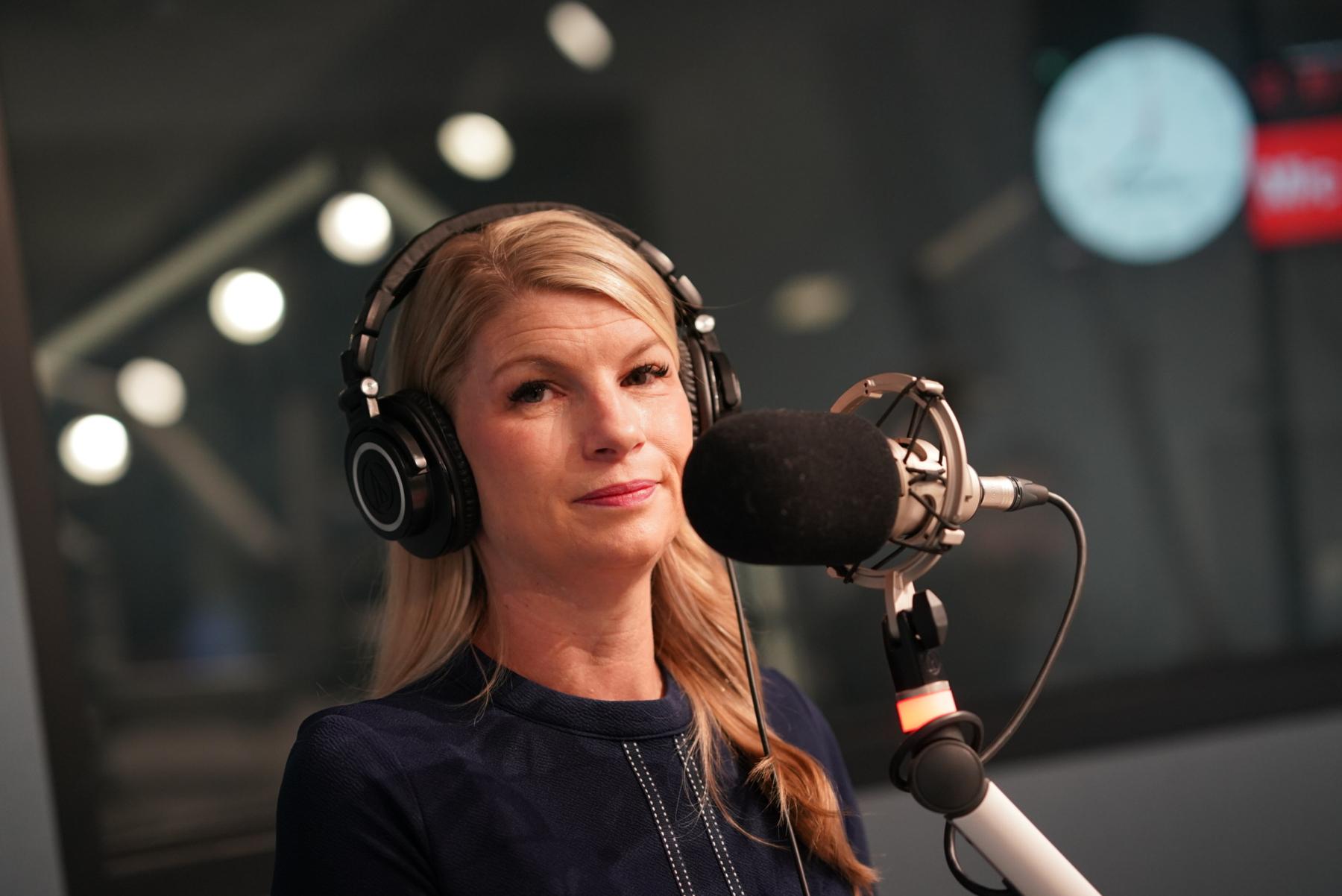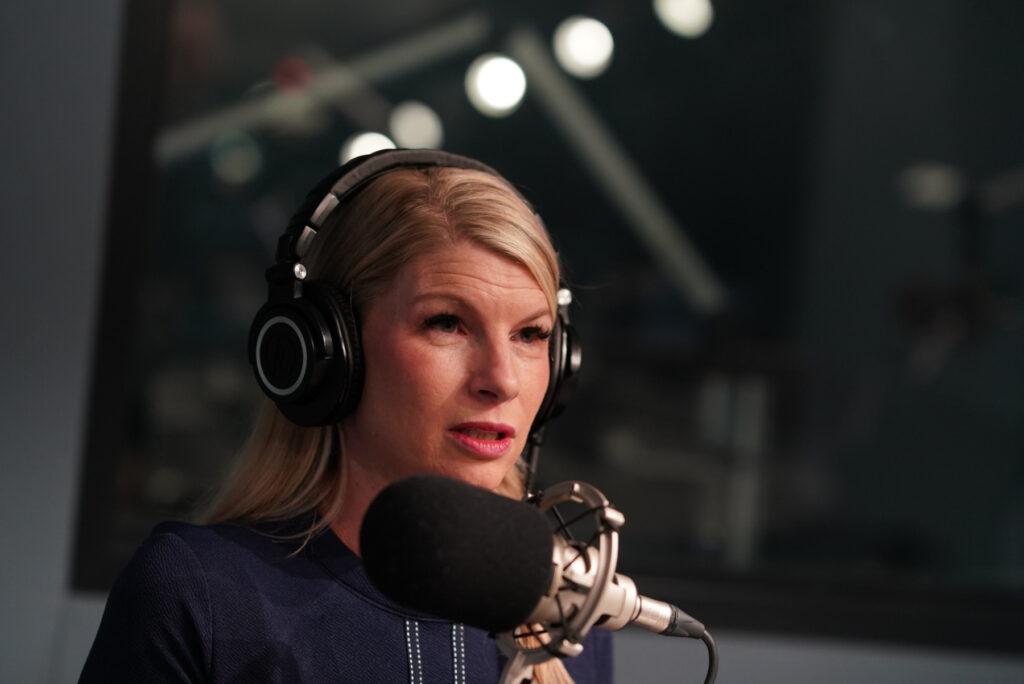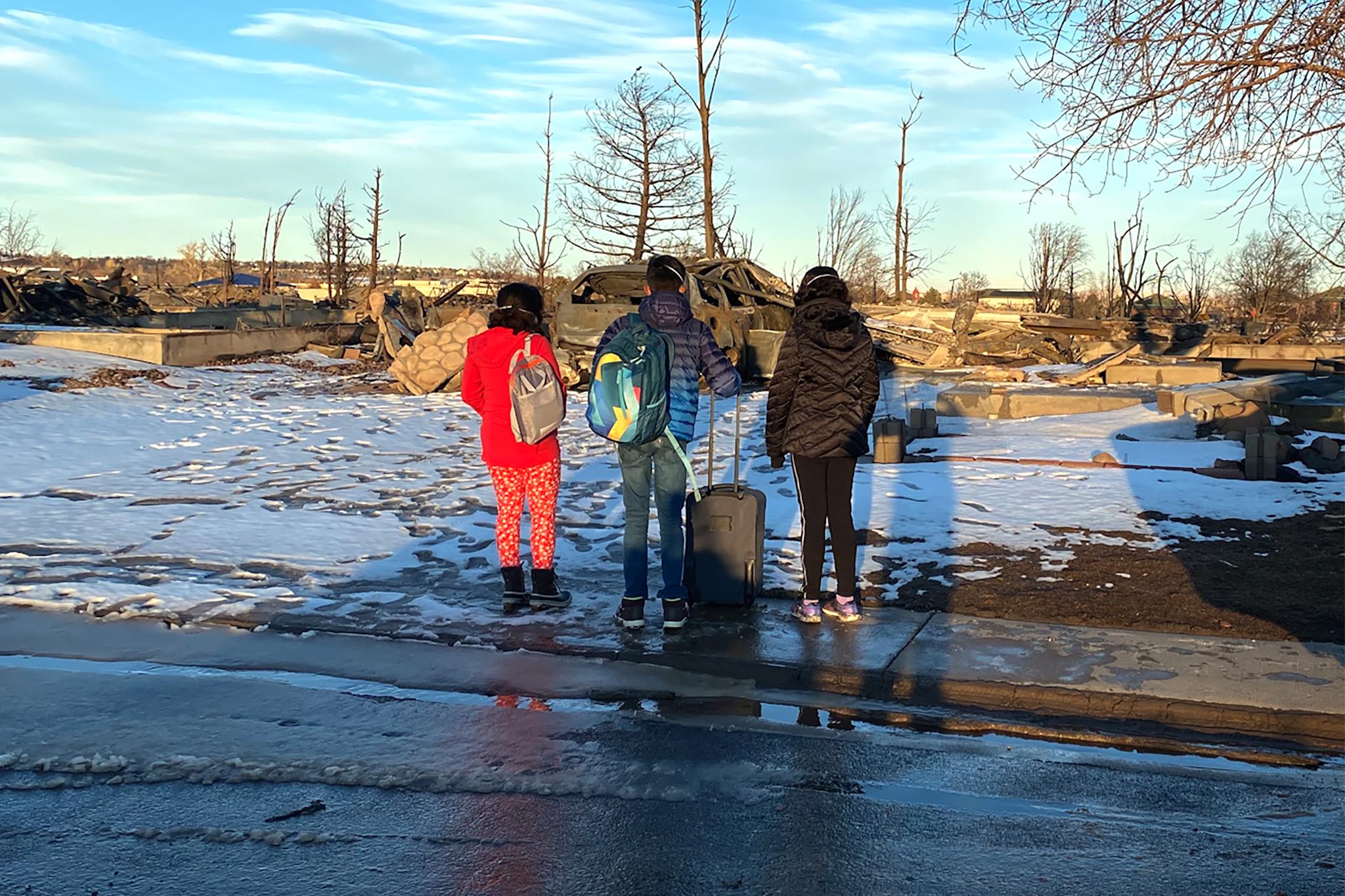
Donald Trump’s “One Big Beautiful Bill” is now law and Colorado Democrat Brittany Pettersen, who voted against it in the US House, says elements of the bill that eliminate taxes on tips and overtime will not be enough to counter the cuts that will affect low-income Coloradans.
“These are the people who also are going to lose healthcare. They're going to have increased insurance costs. They're not going to have SNAP benefits. And so when you think about the safety nets that are being taken away … they are losing with this bill.”
Pettersen represents Colorado’s 7th Congressional District and has been a vocal critic of the cuts to Medicaid and food assistance programs included in the nearly 900-page law. She also says Republicans are not being forthright about the impacts that increased work requirements and other administrative demands for Medicaid will have on enrollment.
“They know that it's very politically unpopular to do the things that they want to do. So instead of taking away Medicaid from the millions of people who are going to lose coverage because of this bill, they make it so impossible to qualify, to stay qualified,” she said.
Pettersen spoke with Colorado Matters Senior Host Ryan Warner about the impacts she expects to see from the newly passed legislation. She also discussed what the Democrats could have done differently to stave off legislation that she said will be a “catastrophe for our local communities.”
“Unfortunately, we have failed to meet people where they're getting their news, to get our message out about what we stand for. And the Right has been effective at defining us and, unfortunately, polarizing some of these issues that make it so that people are less likely to support us,” Pettersen said. “Things like issues around transgender youth and things that people don't know a lot about — that you can create fear and misinformation.”
Instead, Pettersen points to issues like paid family leave support in Colorado as examples that her party’s policies can garner wide support.
“If you take out the partisanship and you look at the things that Democrats stand for, the policies that we want to fight for at the federal level, we have broad support,” Pettersen said.
This interview has been edited for length and clarity.
Ryan Warner: You along with other Colorado Democrats, have been highly critical of what is now law, the One Big Beautiful Bill. In your reading of it, who stands to lose the most?
Rep. Pettersen: Working class families, women, children, future generations here in the United States and in Colorado. It's hard not to cry when I think about the impacts that this bill is going to bring and the catastrophe for our local communities, especially our rural communities.
Warner: We are hearing from Republicans that the tax cuts in this bill will help the very families you say will be hurt by it.
Pettersen: That couldn't be further from the truth. We know that 83 percent of the tax cuts that are coming are for the most wealthy individuals, 33 billionaires here in the United States and large corporations who are the ones that are going to benefit on the backs of working families. And (Republicans) point to the no taxes on tips, it's only up to $25,000 and this is also one of the tax credits that expires while the rest of them are eternal.
As somebody who waited tables from high school through college in between campaign jobs to put myself through school and to get by — I made $2.13 an hour — and I know this is a small piece. I'm supportive of this very limited support for people who are struggling, but these are the people who also are going to lose healthcare. They're going to have increased insurance costs. They're not going to have SNAP benefits. And so when you think about the safety nets that are being taken away disproportionately, (low-income residents) are losing with this bill.
Warner: SNAP being food stamps, essentially nutrition assistance, and then I think you're more than hinting at Medicaid there. So Congressman (Jeff) Hurd in the 3rd Congressional District believes that 4 percent of folks there are likely to lose Medicaid. Do you have a figure for your own district, an estimate for your own district?
Rep. Pettersen: It is far more than 4 percent. And this is why we hosted a panel with the governor and with the key stakeholders that actually oversee and administer Medicaid, the people who administer the ACA and oversee that as well to talk about-
Warner: ACA being the Affordable Care Act, Obamacare.
Rep. Pettersen: Yeah, exactly. If you lift the curtain and you take away the talking points that sound good, which is that your able-bodied people are going to have to work now in order to qualify for Medicaid, that is already the case. To imply that people are somehow not working … that they're going to go work because they want to qualify for Medicaid, that is not going to force people back in the workforce. These are people who are disabled. These are our seniors who are living in poverty. Forty percent of pregnant women, 40 percent of kids in Colorado. And the Medicaid expansion population, those are people who are making up to $21,000. That is the most that they can make in order to qualify for Medicaid.
So there's things that we could have done to streamline this by, “Hey, look at your taxes.” These were people who are already working these low-wage jobs, barely able to make ends meet. There's ways that you could streamline that, but they were unwilling to even go there because this bill is designed to make it nearly impossible to qualify and nearly impossible to stay qualified. It's designed to kick people off and that's why a trillion dollars are going to be cut from Medicaid over the next decade.
Warner: Do you have an estimate for what the Medicaid rolls would look like when this takes effect for your district?
Rep. Pettersen: So with the changes in the Senate — they're still scrambling to get some of these district-specific numbers — but the estimate right now is between 240,000 and 471,000 in Colorado are at risk of losing Medicaid and ACA coverage. So that is a significant hit to the State of Colorado. I don't know exactly what each of our districts will look like, but he (Hurd) does, I believe, have the highest percentage of folks who rely on Medicaid. When I think about the 40 percent of pregnant women who rely on Medicaid, 40 percent of kids in Colorado, when I think about people like my mom who are working low-wage jobs who don't know how to jump through the hurdles of actually applying for this every six months and continuing to prove that they qualify to be covered by Medicaid, this is going to be disastrous for our state.
And it's going to leave, unfortunately, nursing homes in a position where they're not going to be able to serve our seniors. It's going to put our hospitals, especially in rural Colorado, at risk of closing. And the most vulnerable populations are going to be impacted. But outside of that, it's not just people with disabilities and kids, it's also going to hit all of us because when you have people showing up to ERs, when you have people who don't have preventative care and they're showing up with uncompensated care, it's going to hit the system and the private insurance market as well. So we're going to see a significant increase in costs for all of us who rely on private insurance for coverage.

Warner: You made specific reference to rural parts of your district. I'm thinking most likely that applies to Custer County, maybe Chaffee County, Lake County, Park County. Why do you believe this to be disproportionate for them?
Rep. Pettersen: So when you have people in Teller, Fremont, Custer Counties, it has a higher rate of people who utilize Medicaid to pay for healthcare. And so, unfortunately, when you look at these small rural communities, not only are they going to have their healthcare coverage decimated, and you have the unfortunate reality of some of our rural hospitals being at the brink of closing, most of these hospitals are operating in the red. So when you take away Medicaid coverage, that is not a system that is going to work for hospitals to be able to keep their doors open.
And then you're losing those dollars in those communities that go a lot further. So you're losing those jobs. As Governor (Jared) Polis said, you're firing doctors and nurses and hiring bureaucrats, which is the opposite direction of what we should be doing to streamline our process in our healthcare system, to support people, increase access and reduce costs. So all of that is going to hit rural Colorado at a much higher rate.
Warner: What does it say, systemically though, about this state, this country and this economy that so many people need Medicaid? I mean, we should have that conversation.
Rep. Pettersen: Yeah, I think that you're hitting at the heart of the unfortunate trend in the United States, which is the wealth gap continues to increase and this bill is going to make it significantly worse. The opportunities that I had growing up here to move out of the income bracket that my family was in and try to build a better life, those opportunities are going to continue to be chopped away at with prioritizing billionaires and millionaires over investing back in our communities. And so you're exactly right that the salaries and the pay for folks are not keeping up with the cost of living, and that is a foundational issue in this country.
Warner: Under this legislation, Immigration and Customs Enforcement becomes the top-funded domestic law enforcement agency. Republicans won, in large part, on an immigration message. Does this investment in ICE make people in your 7th Congressional District safer?
Rep. Pettersen: Well, there's bipartisan support in making sure that we're securing the border, that we're addressing drug trafficking and increasing our screening technology and modernizing our system. That is separate. That is something that Americans support, that both parties support. Now, what they're doing is they're militarizing ICE. It is terrifying the ways in which this is being utilized and this does not make our communities safer. It is already a deportable offense to be charged criminally as an immigrant. And Biden deported many people out of this country who were convicted, but he didn't make a reality TV show out of it. And unfortunately, right now what they're doing is deporting people without due process. We know that 50 percent of the folks who have been deported, around that (number), do not have any criminal history — people who are here legally, they're deporting people, even US citizens.
And so I think it's terrorizing the immigrant community. This has long-term detrimental impacts on our economy when we think about not just why we need to support immigrants, because it's an important part of this country and our foundation and it's morally the right thing to do. It's also what we need to do for our economy. We are going to see skyrocketing costs for our food industry, skyrocketing costs in construction. This is doing the opposite of reducing costs for families, which is what Trump said that his number one priority was going to be and why he won the election. People were willing to put aside their opinions of him because they thought maybe their life will get better and he is drastically going the opposite direction.
Warner: Do you see any real effects on the ground in your district right now of this administration's immigration policy?
Rep. Pettersen: Absolutely. We have kids who are scared to show up to schools, people who are scared to show up to hospitals when they're in need. People are frightened to leave their homes because they don't know if a family member will be targeted on the street because of the color of their skin. And I have people in my life who are legal residents. They don't know what their future holds and if they're going to be separated from their families. So it is bringing fear across the country and it's detrimental to our long-term success.
Warner: Do Democrats need to be more fervent about this point?
Rep. Pettersen: I think that we have failed to communicate a vision of an immigration policy that works and the things that voters want to see. They want to see order at the border. They want to also have an immigration system that reflects the needs of our economy. They want common-sense steps to address the challenges that we're facing here. And I often say that our immigration system it's like a healthcare system that only has an emergency room. And so when the only option that people have is to show up at the border no matter what their circumstances are, you're seeing the chaos that we saw over the last decade really in a system that does not work in addressing our economic needs, that provides people a pathway, if they're fleeing violence and oppression, that they have a fair hearing and that they're given a shot if they are able to stay here in the United States and that we provide regional pathways that are not on the border, that we're taking it off the border and out of the hands of the cartels.
So I think that we need to do a better job at painting a picture around an immigration system that actually works and addresses the issues that people saw every day, but also reminding people that the immigrant community is an essential part of our state, our economy, in that without immigrant workers, we are unable to fill the needs of today for our economy. It'll be catastrophic when you think about the long-term damage.
Warner: One issue on which you're mincing no words has to do with those deadly, horrific floods in Texas. So you shared on social media an article from CNN that finds Secretary Noem had not authorized FEMA's deployment of urban search and rescue teams till more than 72 hours after the flooding began. This is according to multiple sources from CNN. You shared that article and said, "The incompetence of this administration is deadly, Secretary Noem should step down immediately. This isn't a reality TV show. Do your ‘effing jobs,” which you know that's not your everyday language, Congresswoman.
Rep. Pettersen: Yes.
Warner: Talk to me about the fervor behind that social media post.
Rep. Pettersen: There's many times I've wanted to use expletives talking about what's happening at the federal level. So it's hard to hold back, even though that's language I don't always use.
It is disastrous. The people that they have in charge; the 22-year-old that they appointed to address threats of terrorism, Kristi Noem who treats her job as a reality TV star instead of the professional that we need her to be. When I said that it's deadly, there are consequences. There are immediate consequences that we're seeing in Texas and I can't even fathom when we reflect back in the time that Trump has been in office and the people that he's appointed who have no business being in these positions about the loss of life, the consequences to this country, and it makes us less safe.
Warner: On the question of safety, we heard Representative Hurd speaking specifically to the modernization of air traffic control in the One Big Beautiful Act. Are there investments that you see from this reconciliation legislation that give you a glimmer of hope?
Rep. Pettersen: There are pieces of this bill (I like), like not taxing Social Security. There are limited focus areas where we could have had a bipartisan bill, but they are so insignificant compared to the majority of where the priorities are. And we always say in the legislature that the budget is a moral document and it is clear where their focus is. This is not about working families. This isn't about addressing the challenges of the United States and investing in our future. This is about giving more tax breaks to the wealthiest people in the world on the backs of working families. So I think that none of us would disagree with this.
These are things that we could come together, very easily on, in a bipartisan way to address air traffic controllers and modernizing that system. That's actually government efficiency, not firing everybody up top and making it so nothing works, so that people can actually qualify for the benefits that they deserve. So yeah, let's talk real government efficiency. That's an example. So that's one small good piece in this bill. There were also tax credits for housing investments, which are still limited in scope and we need to go much more broad, but you could easily get bipartisan support on that.
Warner: Before we go, you're not powerless, but you don't have a ton of power. You're in the minority in the House. Democrats are in the minority in the Senate and they obviously don't hold the White House. In stark contrast, by the way, to the total Democratic control in the State of Colorado. Do you feel defanged to some extent? Where does your power lie these days?
Rep. Pettersen: Well, the most important thing that we can do right now is to get our message out. Democrats support-
Warner: That didn't work well for Kamala Harris, I guess.
Rep. Pettersen: Yeah, when it comes to the issues, if you take out the partisanship and you look at the things that Democrats stand for, the policies that we want to fight for at the federal level, we have broad support. When you look at paid family medical leave here in Colorado, in very red counties, it passed by a significant majority. Things like this that make sense to people that they know are going to help reduce costs for folks, help meet the needs of our communities. We support issues that are very popular. Unfortunately, we have failed to meet people where they're getting their news to get our message out about what we stand for. And the Right has been effective at defining us and unfortunately, polarizing some of these issues that make it so that people are less likely to support us. Things like issues around transgender youth and things that people don't know a lot about that you can create fear and misinformation.
Warner: Are you starting a podcast? Is that what I hear you saying?
Rep. Pettersen: Well, so I think that the most effective tool that we have is communicating right now about what they're doing, what they're actually doing, not about the five percent of that bill that was passed that sounds good, but what the majority of that bill is going to actually do. And by the way, if it was so popular, why is it going into effect after the midterm elections? Because they know what is going to happen on the ground. They know this is going to cut a trillion dollars out of our healthcare system. The most vulnerable people, even though they qualify for Medicaid, are going to be left without the coverage that they need and it's going to decimate our hospitals. It's going to increase costs for all of us in the private insurance market because of uncompensated care. So we have to tell these stories.
Warner: Has anything changed about how you communicate with voters, then, since the election? Because what I hear you saying is it's not just the message, it's the forum. It's how you reach people. So, how has Congresswoman Pettersen in her office and your staff, your comms people, have you adapted? Are you adapting?
Rep. Pettersen: Yeah, we are adapting. We have prioritized our investments in our office around communications and have new team members coming on, making sure that we're trying to do more videos, going on podcasts, meeting people in the community, making sure that we're doing town halls, unlike my Republican colleagues. It's important that voters actually see you. I always show up even in the reddest parts of my district. They are never going to vote for me, but they deserve an advocate and they deserve to know that I'm there to listen. And so we can't wait until four months before the election to show up in these communities. We have to go into places where most people don't agree with us and we have to start now.









